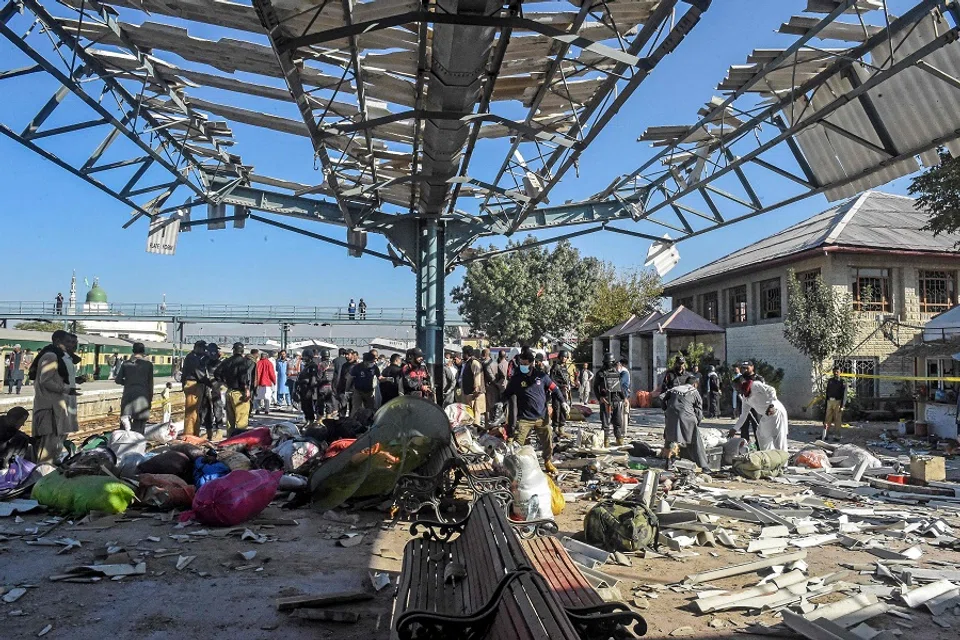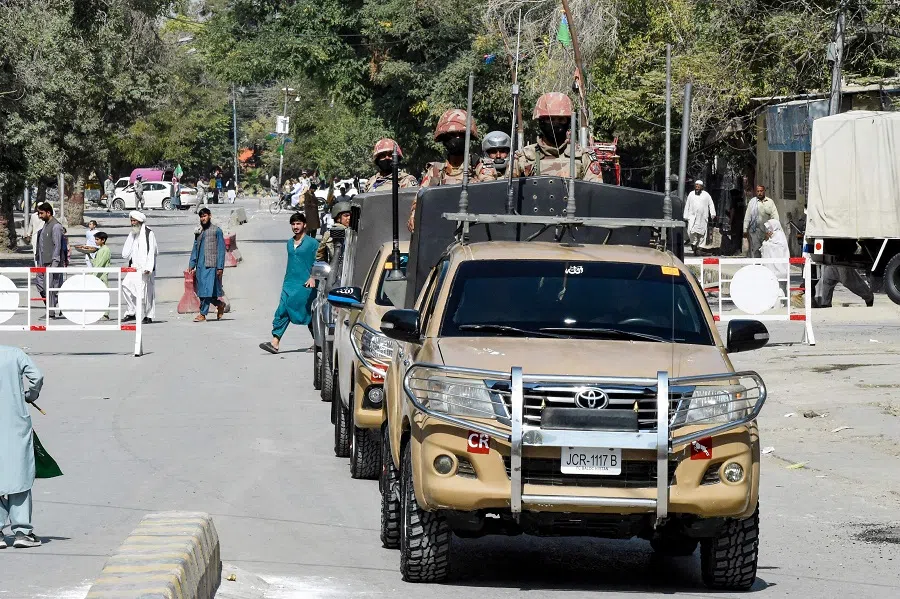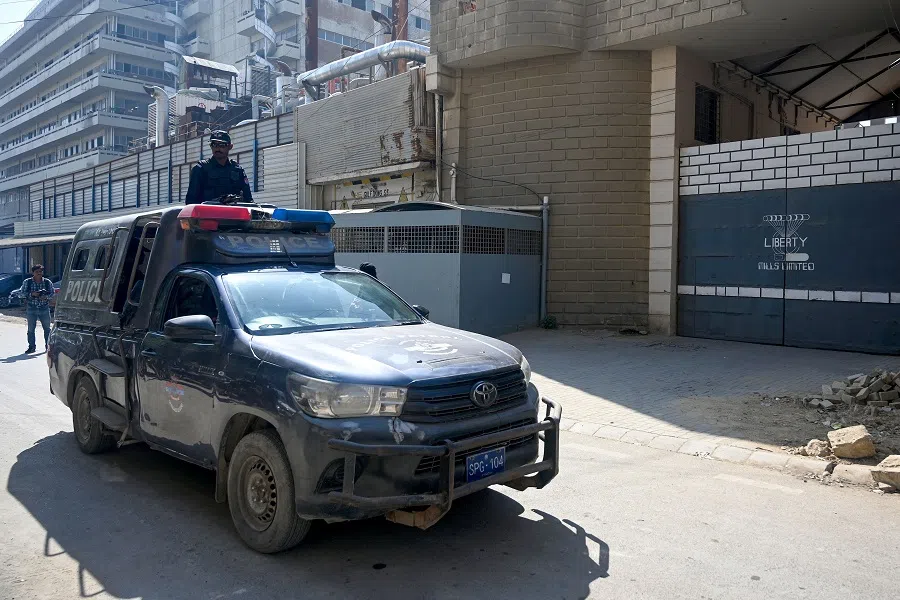Protecting Chinese workers in Pakistan: Should the PLA intervene?
As violence continues to break out in Pakistan, Chinese workers are among those targeted, despite the clashing forces having no quarrel with China. Academic Ghulam Ali notes that China sending troops to Pakistan would not guarantee the safety of its citizens, and might expose them to danger instead.

Unabated terrorist attacks on Chinese workers in Pakistan have prompted policy circles to discuss the prospects of China’s direct involvement in ensuring the safety of its workers in the country. While both governments have remained tight-lipped, the media has uncovered information about ongoing discussions between the two nations.
If these reports prove valid, it would represent a major shift in China’s traditional policy of avoiding security roles in other countries. Furthermore, initiating such a role in a terror-hit Pakistan would serve as a litmus test for Beijing’s capabilities.
Decreasing Chinese investment
Under its “flagship” China-Pakistan Economic Corridor (CPEC), China has committed nearly US$62 billion for projects in Pakistan, of which US$25 billion has already been spent. In developing this project, China has faced severe security challenges due to relentless terrorist attacks on its workers engaged in various projects in Pakistan.
In 2024 alone, seven Chinese nationals lost their lives in two separate attacks. The Balochistan Liberation Army (BLA), a terrorist outfit fighting against the Pakistani military for the independence of Balochistan, and Tehrik-i-Taliban Pakistan (TTP), a religious extremist group demanding the implementation of strict Islamic laws and operating along the porous Pakistan-Afghanistan border, carried out these attacks.
Such challenges have led China to reduce its investment in Pakistan by 74% in 2023, despite an increase in its post-pandemic investments worldwide. Chinese Premier Li Qiang made no commitments to new projects or to initiating the second phase of the CPEC during his maiden visit to Pakistan in October 2024.
China a soft target
Notably, both BLA and TTP, fighting against the Pakistani military, harbour no direct grudges against China. Moreover, these terrorist groups are a result of the flawed policies of the Pakistani state.
China’s significance to Pakistan, due to its historically strong strategic relationship, makes it a soft target. Any attack on the Chinese in Pakistan would bring these groups into the international limelight, which they seek for attention.

The pernicious seeds of religious extremism in Pakistan were sown by military dictator General Muhammad Zia-ul-Haq (1977-88), who imposed strict Islamic laws in the country and joined the Afghan jihad against the Soviet occupation of Afghanistan during the 1980s. Subsequent military leadership also used religious proxies expeditiously.
The TTP is an offshoot of those policies. Most of its demands — implementation of Islamic laws, withdrawal of the military from Khyber Pakhtunkhwa, provincial autonomy and the release of prisoners — are directed at the military. None of these demands is related to China.
Similarly, the insurgency in Balochistan is largely a reaction to oppressive military policies, marginalisation, denial of a share in the province’s abundant natural resources, the establishment of military cantonments and the enforced disappearances of thousands of local Balochis. The roots of this insurgency, now in its fifth wave, trace back to the independence of Pakistan.
China’s role in Balochistan began in 2002 with the construction of Gwadar port. Even after the completion of the first phase of the port, China withdrew, and the port was handed over to the Port of Singapore Authority (PSA). The differences between the Pakistani government and PSA were resolved by transferring administrative control to China in 2015.
Both terrorist groups are fighting against the Pakistani state, specifically the military. China is merely caught in the crossfire. China’s significance to Pakistan, due to its historically strong strategic relationship, makes it a soft target. Any attack on the Chinese in Pakistan would bring these groups into the international limelight, which they seek for attention.
... the fundamental question is whether China’s security role, through PSCs, the PLA, or other security operatives with a direct presence in Pakistan, will help ensure the safety of its citizens.
China’s security role in Pakistan: PSCs or the PLA?
To counter these attacks, proposals for China’s direct role in Pakistan’s security have emerged. These include the deployment of China’s private security companies (PSCs) or the People’s Liberation Army (PLA), strengthening the capabilities of Pakistani security agencies, and establishing a joint security management system with Chinese security officials participating in security meetings.

China’s PSCs, although having grown to thousands with millions of employees, have limited experience in international operations. According to reports, at most 40 of them have overseas operations. Furthermore, PSCs do not carry firearms, lack high-risk operational capabilities and operate under limited authority. Their role primarily consists of intelligence gathering, escort services, security training, risk assessment, site protection and emergency evacuation.
The deployment of PSCs or the PLA would require amendments to the existing laws of both countries, as they prohibit security roles in other countries. While amendments may not be difficult, as both states are involved, the fundamental question is whether China’s security role, through PSCs, the PLA, or other security operatives with a direct presence in Pakistan, will help ensure the safety of its citizens.
Chinese deployments would hardly enhance security, given that they are unfamiliar with Pakistani culture and geographic conditions.
China should think twice
If PSCs or the PLA are deployed in the outer security circles around Chinese compounds or alongside vehicles carrying Chinese engineers, it would directly expose them to terrorist targets. As terrorists employ suicide attacks, which are the ultimate form of ambush, this reduces the chances of survival. Chinese deployments would hardly enhance security, given that they are unfamiliar with Pakistani culture and geographic conditions.
At the same time, deploying China’s regular or paramilitary forces would contribute to the Baloch militants’ narrative that China is assisting the Pakistani military in the exploitation of the province’s resources, representing a new form of colonisation. On the global stage, it would reinforce the perception of China’s expansionist agenda driven by its military power.
Considering that the Pakistani military and intelligence agencies, with all the resources at their disposal (equipment, access to information, and control over state machinery), have failed to ensure the safety of Chinese workers, how could small contingents of Chinese troops succeed in doing so?
The failure of Pakistan’s counterterrorism efforts is not merely due to a lack of financing, equipment or intelligence sources. Following its entry into the US-led “war on terror” in 2002, the Pakistani military received substantial aid, equipment, and intelligence support from the US. Yet terrorist incidents in the country continued unabated.
China should think twice before entering into Pakistan’s security quagmire, which is a product of the Pakistani military itself. Sending any form of troops to Pakistan offers no guarantee of safety for its citizens and would likely expose them further to terrorists. China can strengthen Pakistan’s counterterrorism measures while simultaneously questioning the will of the Pakistani military in this fight.





